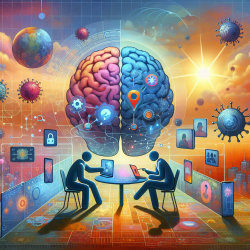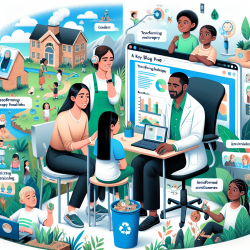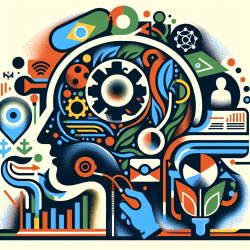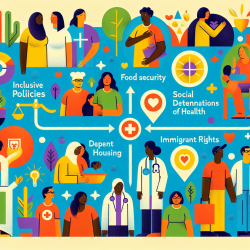The 21st century has witnessed numerous viral epidemics that have reshaped our understanding of public health and societal norms. The COVID-19 pandemic, in particular, has highlighted unique neuroethical challenges that practitioners must navigate to provide effective care. This blog post explores key insights from the research article "Neuroethical and Societal Challenges of 21st Century Epidemics" and offers guidance for practitioners looking to enhance their skills in this evolving landscape.
The Neurological Impact of Epidemics
Viral epidemics often bring with them a range of neurological and neuropsychiatric manifestations. COVID-19 is no exception, with symptoms such as altered mental status, dizziness, headaches, and more severe conditions like encephalitis and cerebrovascular disease being reported. Understanding these manifestations is crucial for practitioners aiming to provide comprehensive care.
Neuroethical Considerations
The scale of infection during pandemics like COVID-19 raises significant ethical concerns. Practitioners are faced with the challenge of balancing individual patient needs with collective societal responsibilities. This includes making difficult decisions about resource allocation and triaging patients during surges in cases.
Anxiety related to these ethical complexities can significantly impact the mental well-being of healthcare workers. It's important for practitioners to recognize these pressures and seek support when needed.
The Role of Digital Communication
Modern digital communication technologies have played a pivotal role in maintaining social connectedness during periods of physical isolation. However, they also present new ethical dilemmas. The increased screen time necessitated by remote work and schooling can have unknown impacts on cognitive development and mental health.
- Practitioners should be aware of these potential impacts and consider them when advising patients on digital media use.
- Encouraging balanced screen time and promoting offline activities can help mitigate potential harms.
Preparing for Future Pandemics
The lessons learned from COVID-19 and other 21st-century epidemics offer valuable insights for future preparedness. Practitioners should consider engaging in further research to deepen their understanding of the neurological effects of pandemics and the associated ethical challenges.
By staying informed through continuous education and collaboration with peers, practitioners can enhance their ability to respond effectively to future public health crises.
Conclusion
The intersection of neuroethics and societal challenges during epidemics presents complex issues that require thoughtful consideration by practitioners. By leveraging insights from recent research, healthcare professionals can improve their skills and better support patients through future pandemics.
To read the original research paper, please follow this link: Neuroethical and Societal Challenges of 21st Century Epidemics.










